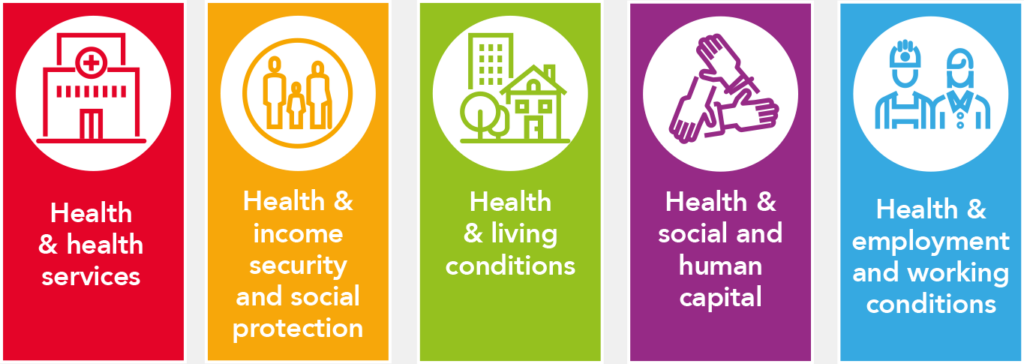Following the successful launch of the Welsh Health Equity Status Report intiative (WHESRi) and the publication of the first report titled Placing health equity at the heart of the COVID-19 sustainable response and recovery: Building prosperous lives for all in Wales, the World Health Organization (WHO) Collaborating Centre at Public Health Wales has published their latest paper, developed in close collaboration with the Welsh Government and the WHO European Office for Investment for Health and Development (Venice, Italy).
The paper titled Influencing the Health Gap in Wales: Decomposition analysis discussion paper provides a snapshot of health inequalities in the years leading up to the Coronavirus (COVID-19) pandemic, applying an innovative methodology, a ‘decomposition analysis’. It attempts to quantify the health gap in Wales, and to provide a better understanding of its main drivers across the five essential conditions (wider determinants) for healthy prosperous lives for all, using a novel WHO framework (below).

The analysis uses individual measures of self-reported health, comparing between: 1) Those who are able to make a saving of at least £10/month and those who are not; 2) Those who report being in material deprivation and those who do not; and 3) Those who report a limiting longstanding illness, disability or infirmity and those who do not.
The decomposition analysis has generated an insight into the drivers of health inequities, identifying those which contribute the most, namely ‘Social and Human Capital’ and ‘Income Security and Social Protection’; while ‘Health Services’ has accounted the least. However, systematic differences are able to explain less than half (<50%) of the health gaps for the majority of the health outcomes, based on the statistical models.
The paper highlights the need for a basket of policy and investment decisions, prioritising the key drivers of health inequity, in consensus across sectors. Further exploration and engagement with experts, stakeholders, relevant groups and communities is essential to improve understanding of the health equity gap and its drivers.
In addition, the escalating cost of living crisis has the potential to increase health inequities further, having a direct impact on the two essential conditions, which drive the largest (explained) part of the health equity gap in Wales.
An interactive dashboard to illustrate the decomposition analysis of the health gap in Wales is available here.
